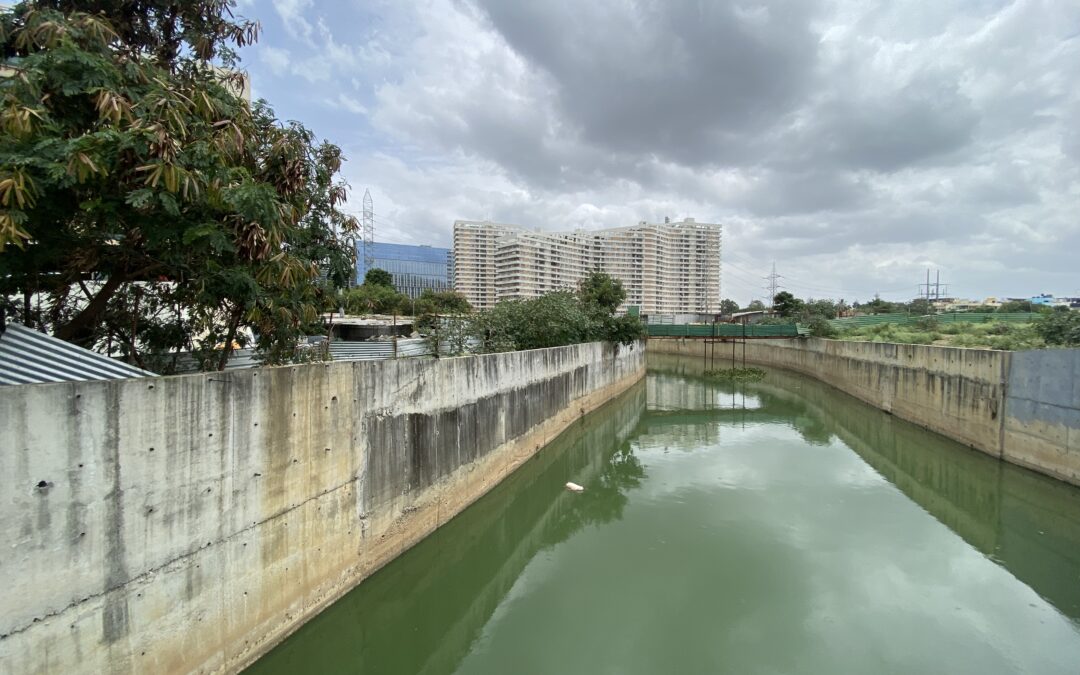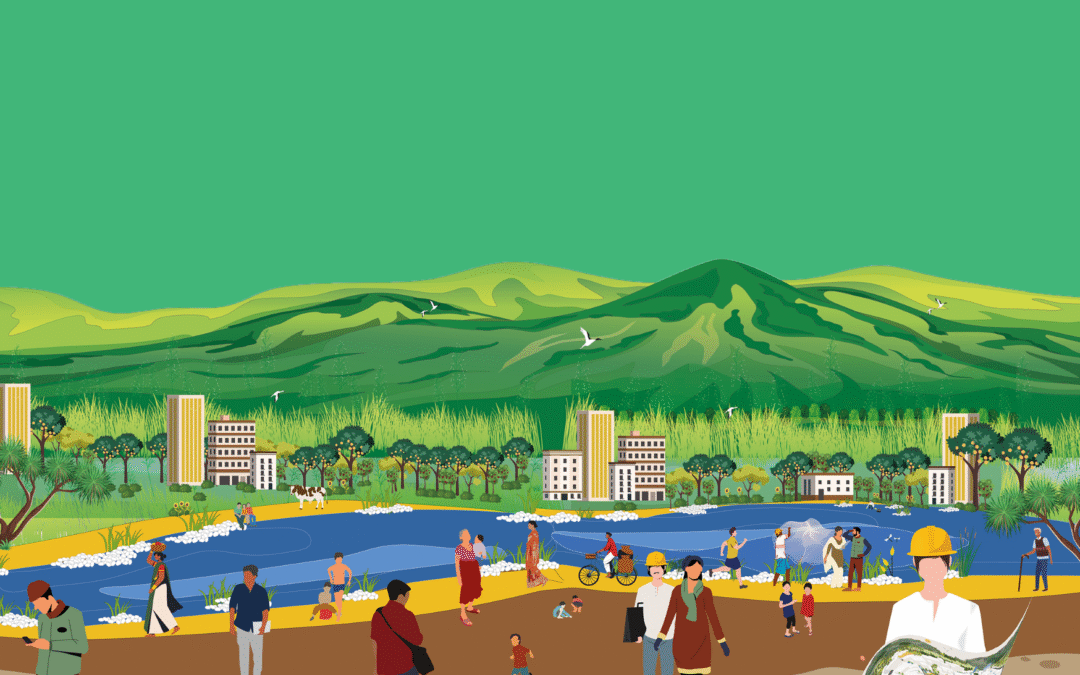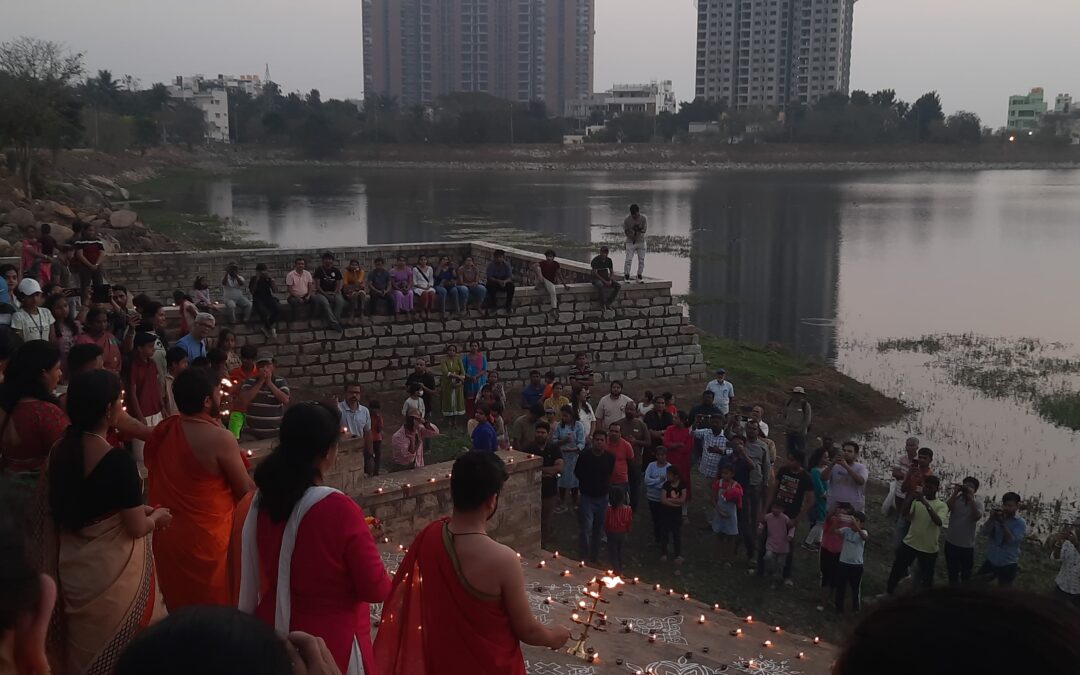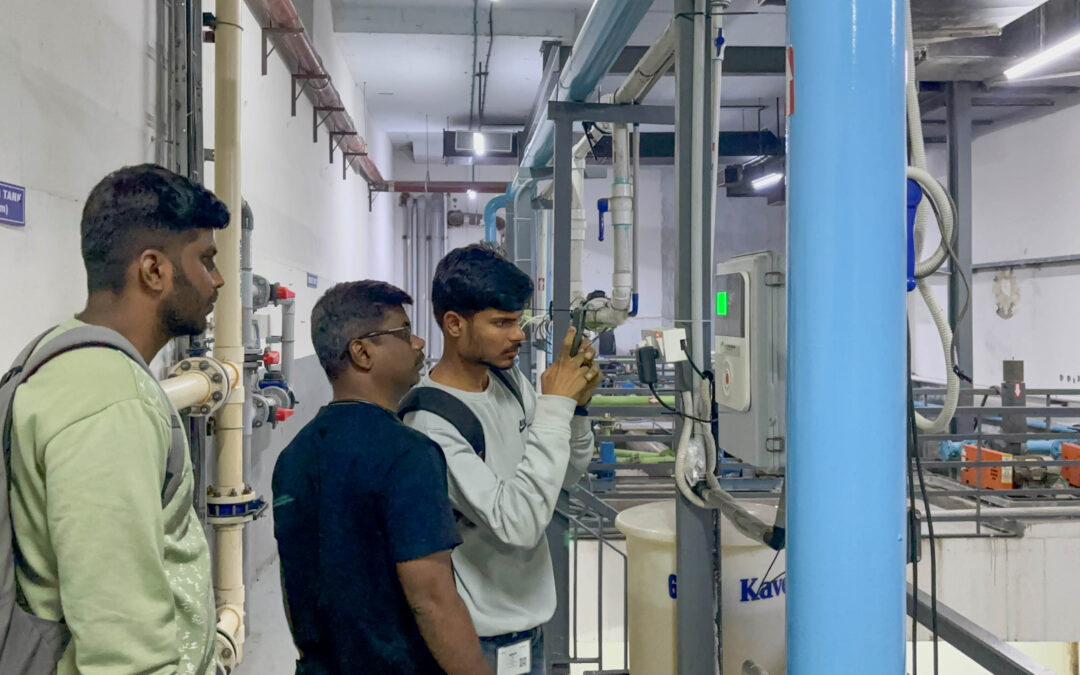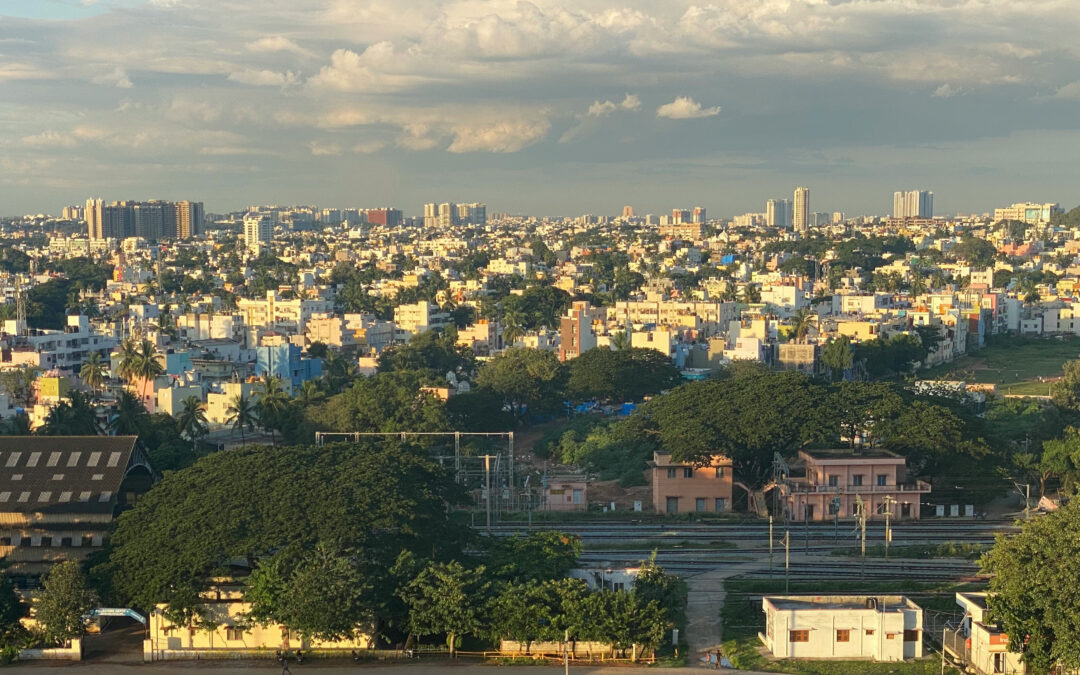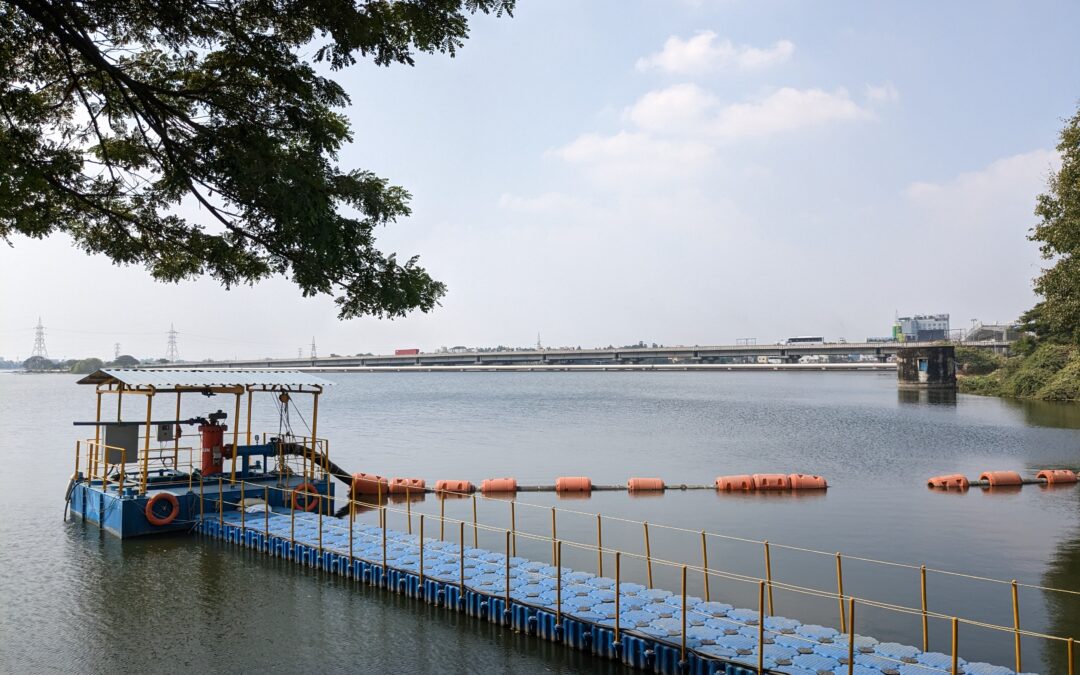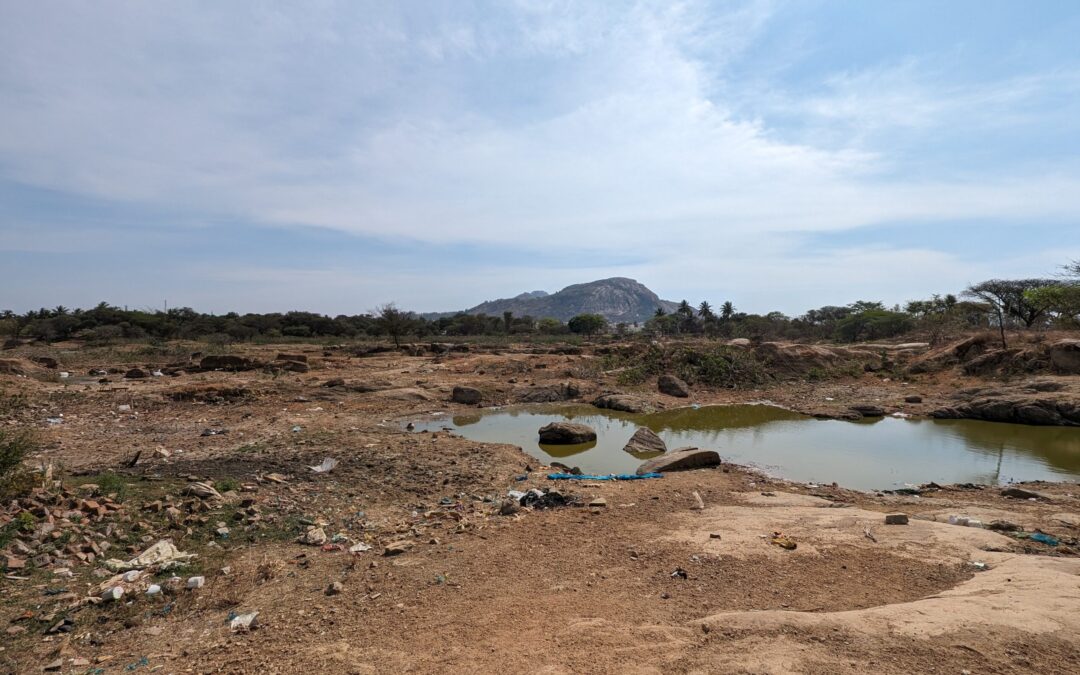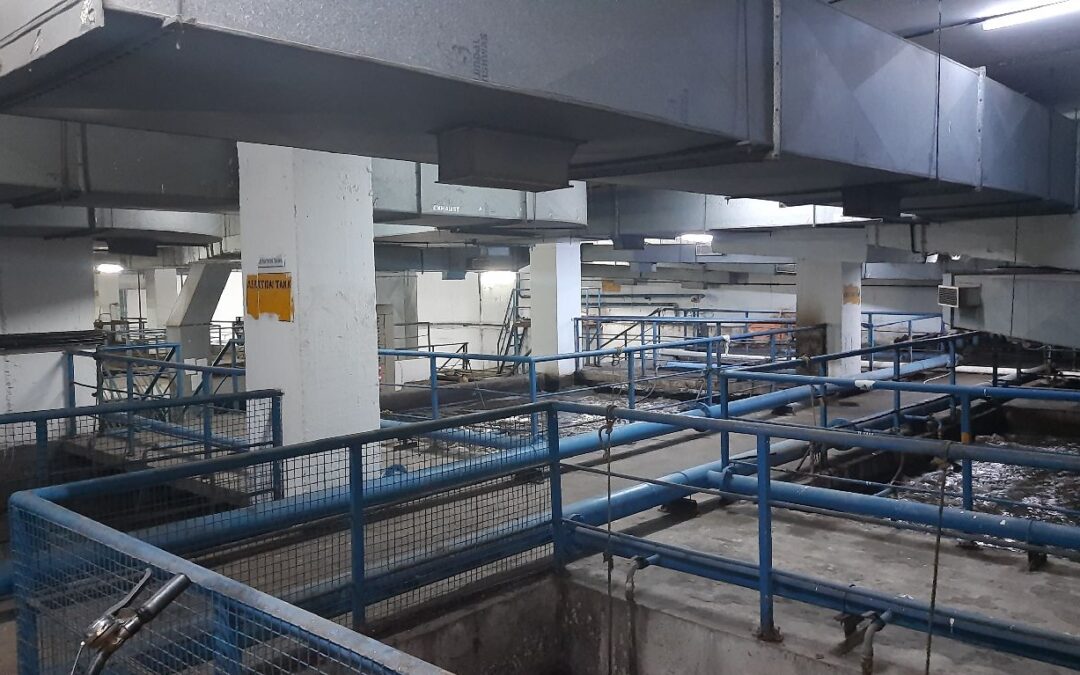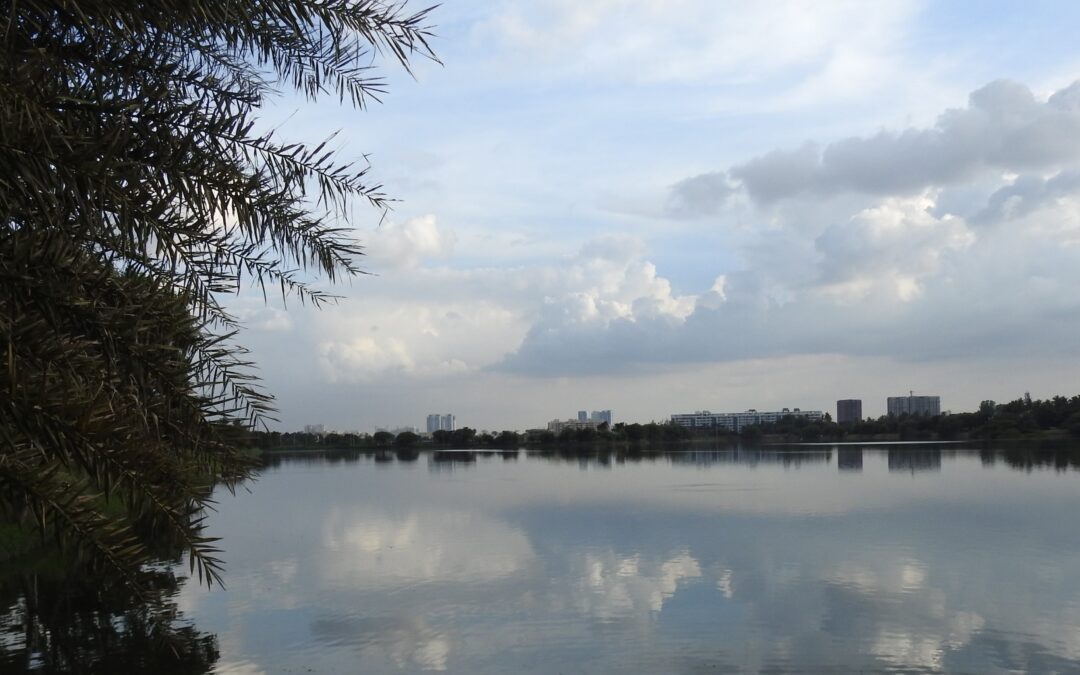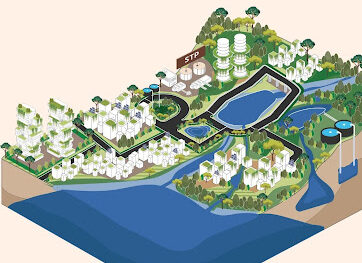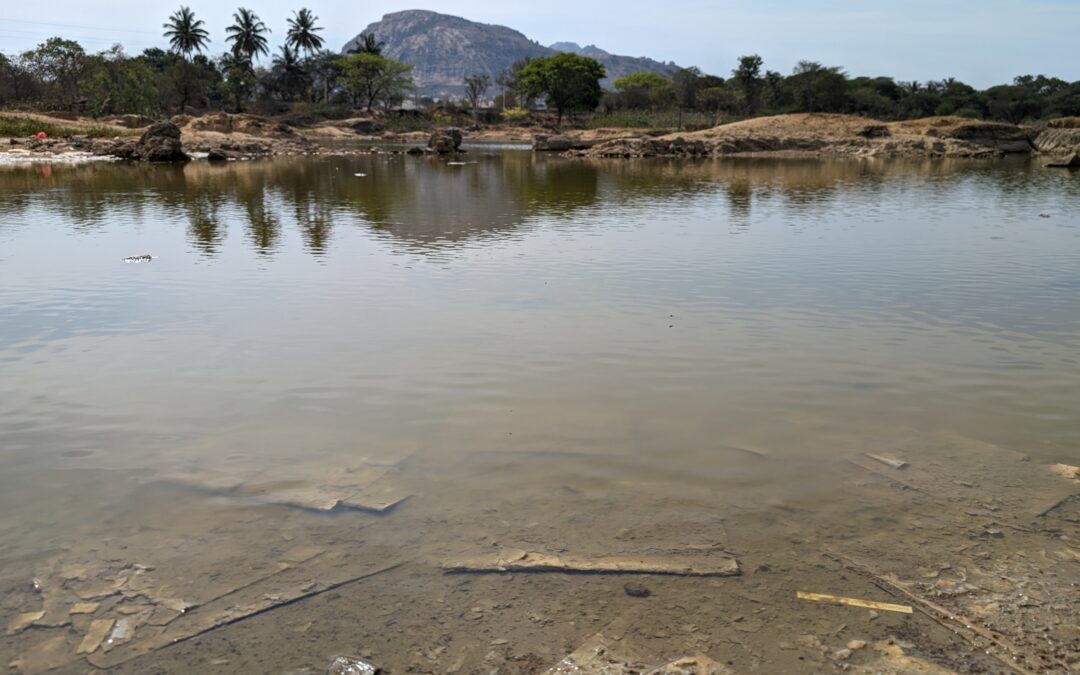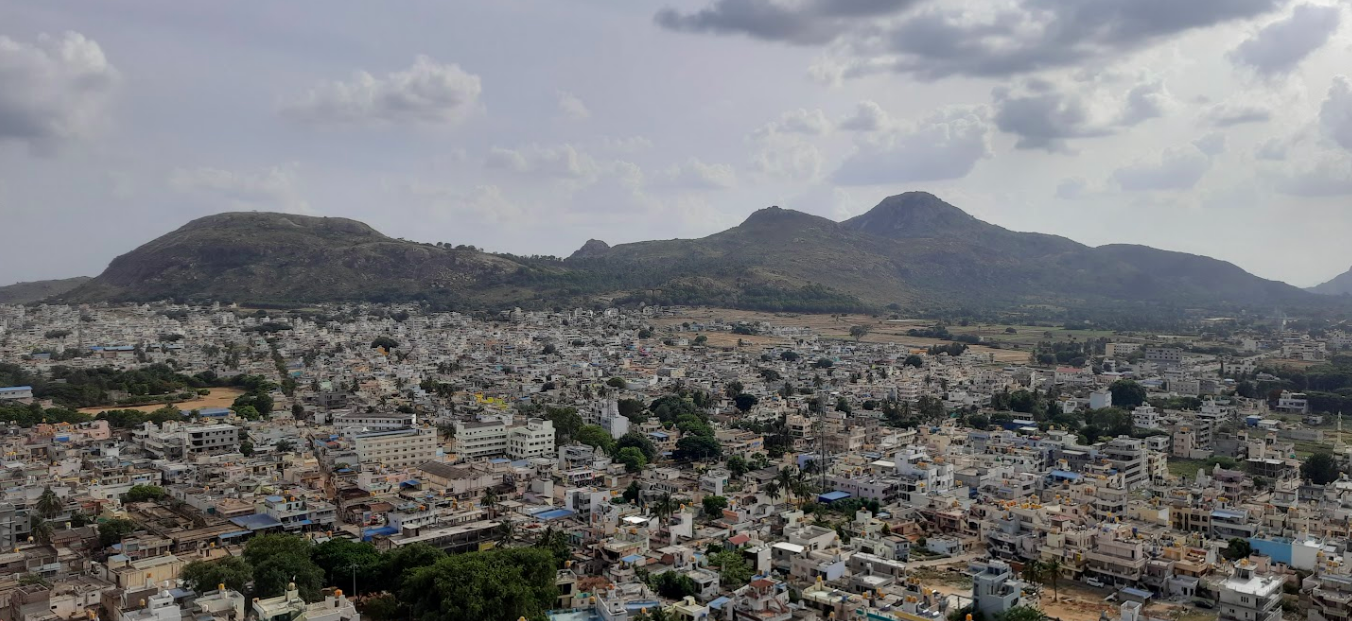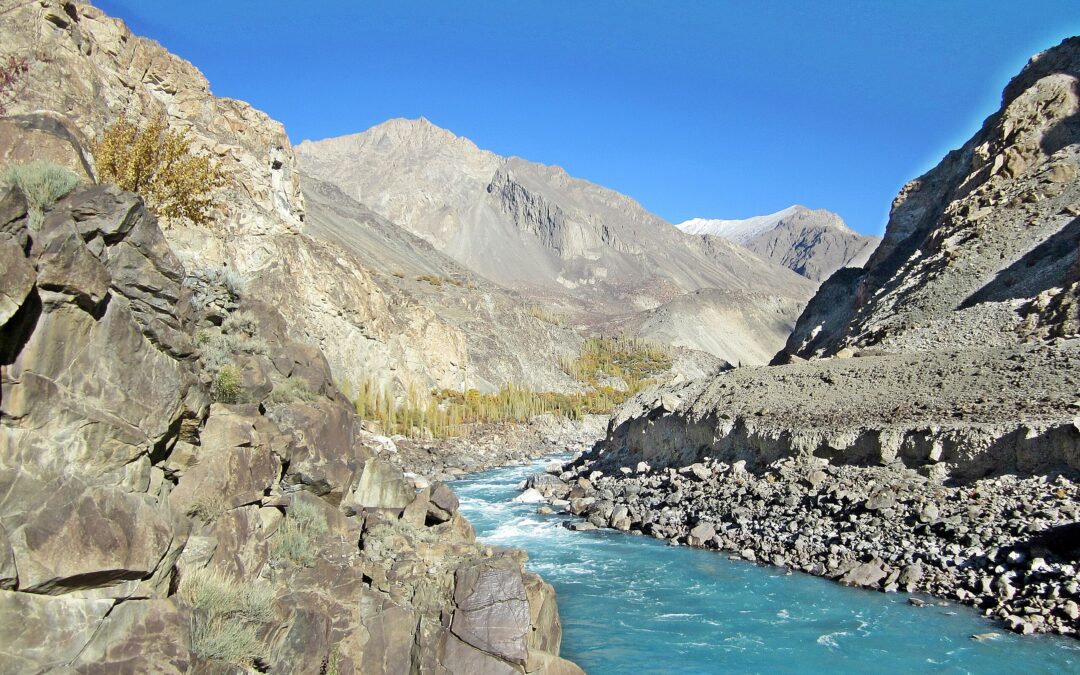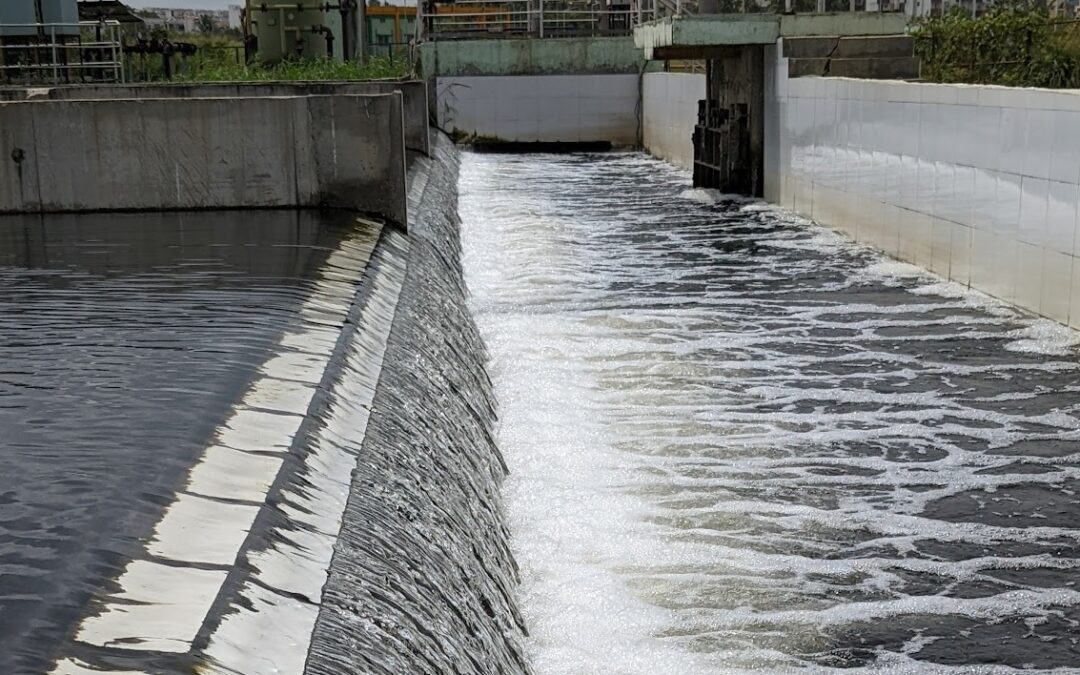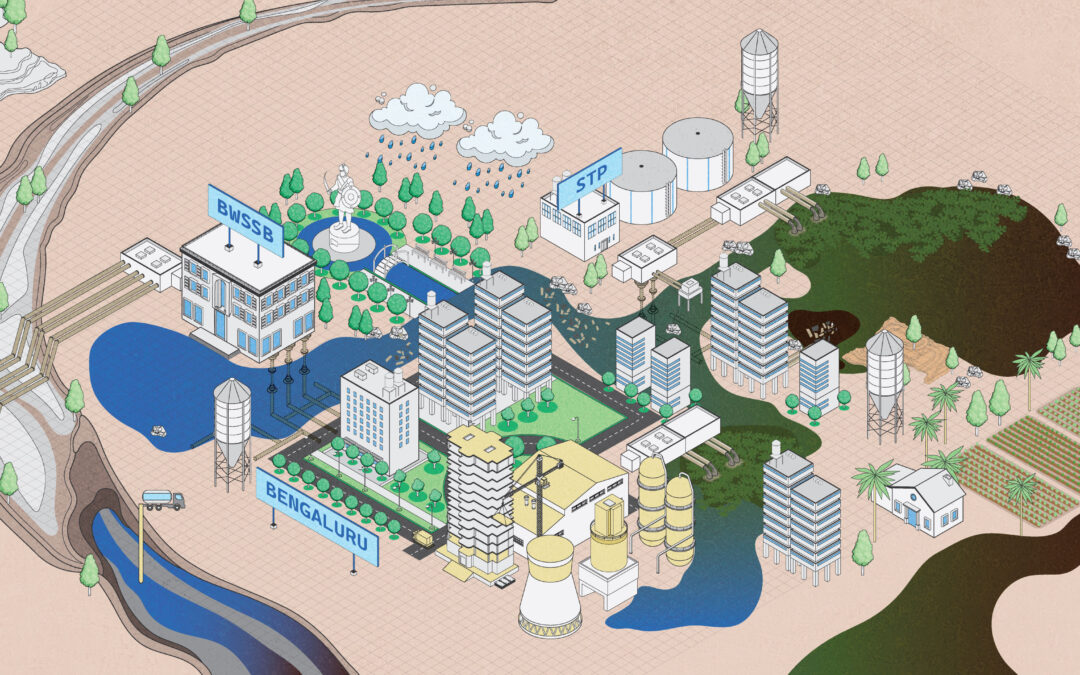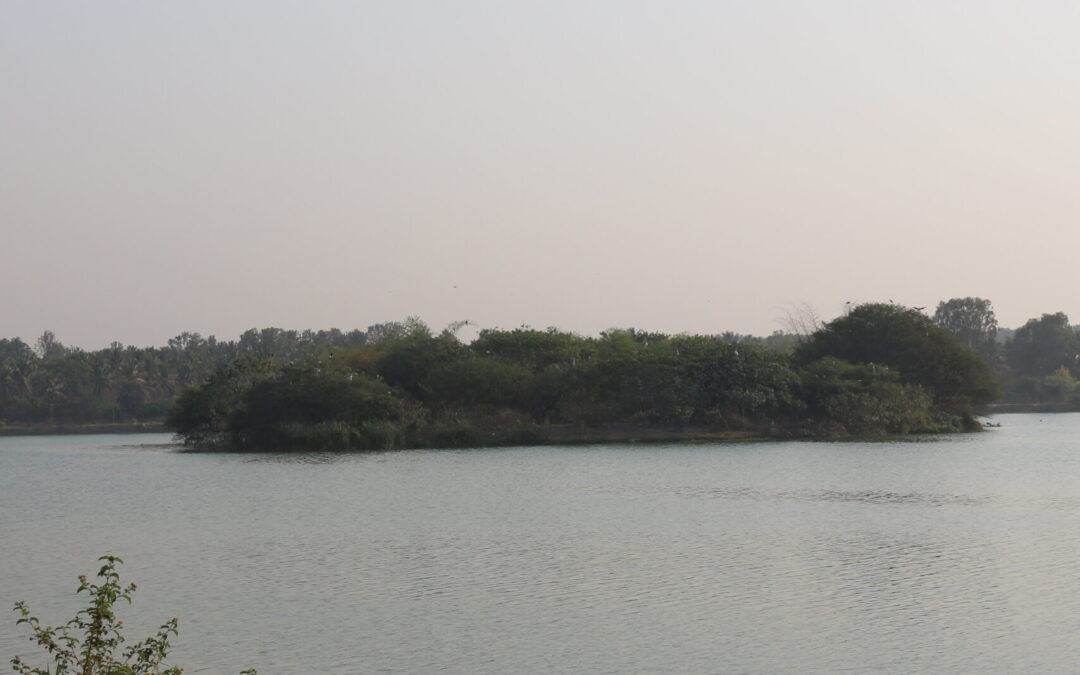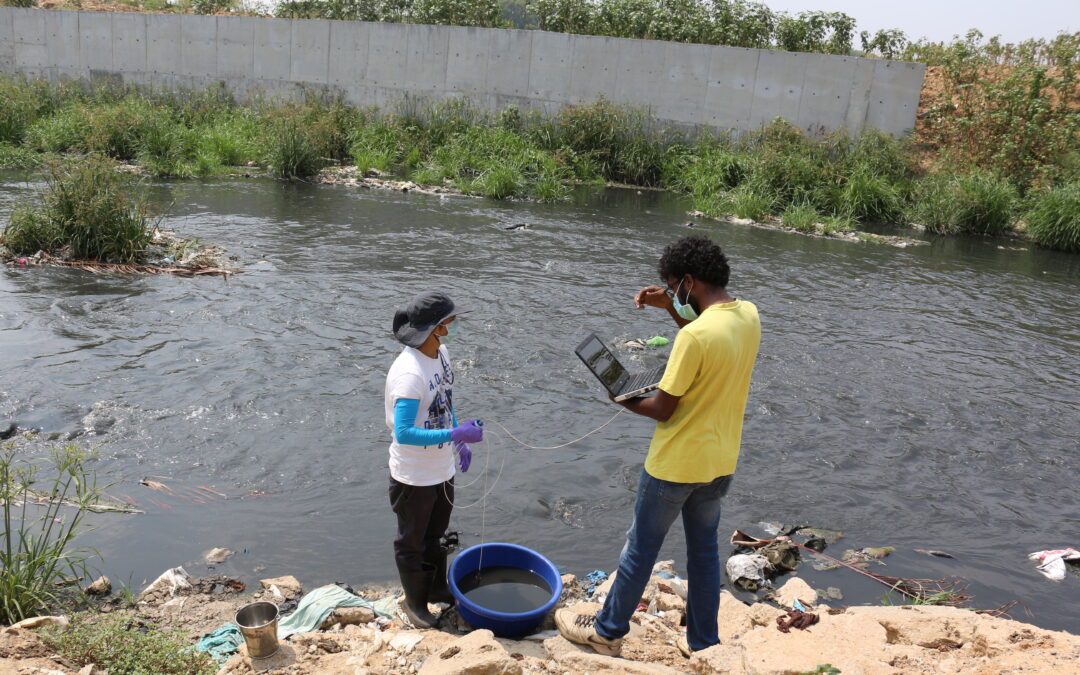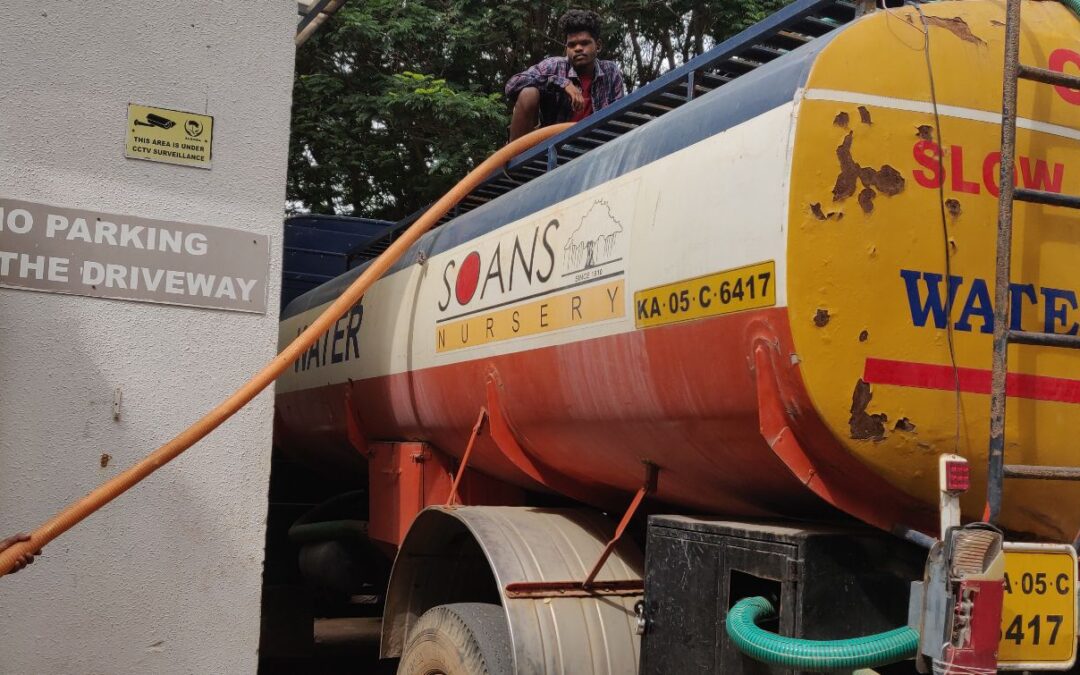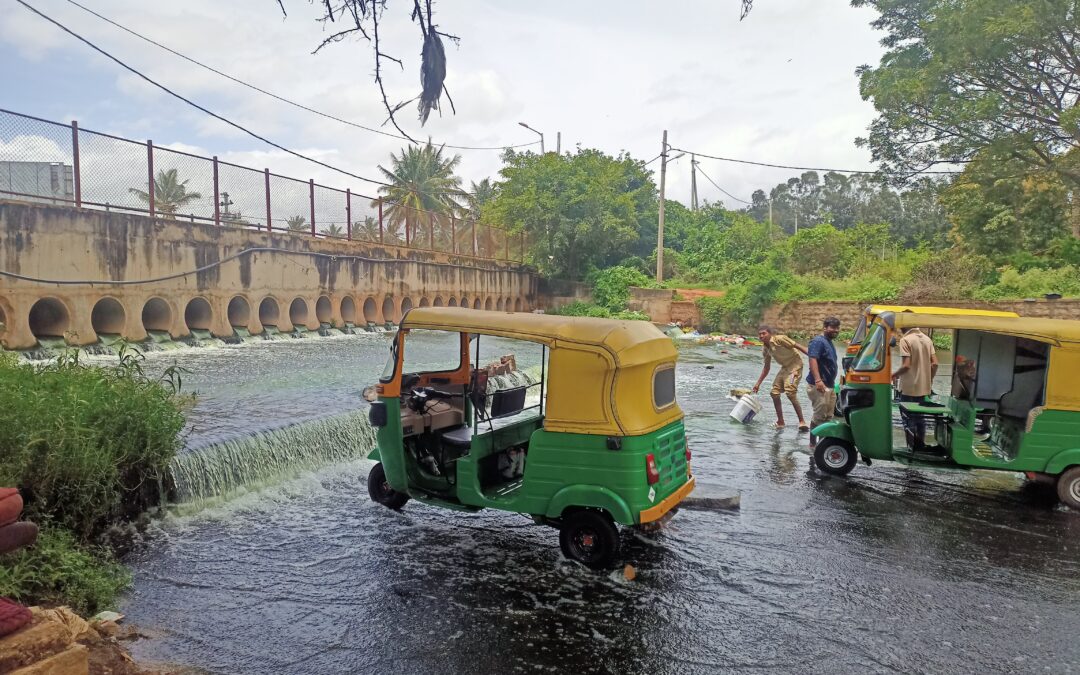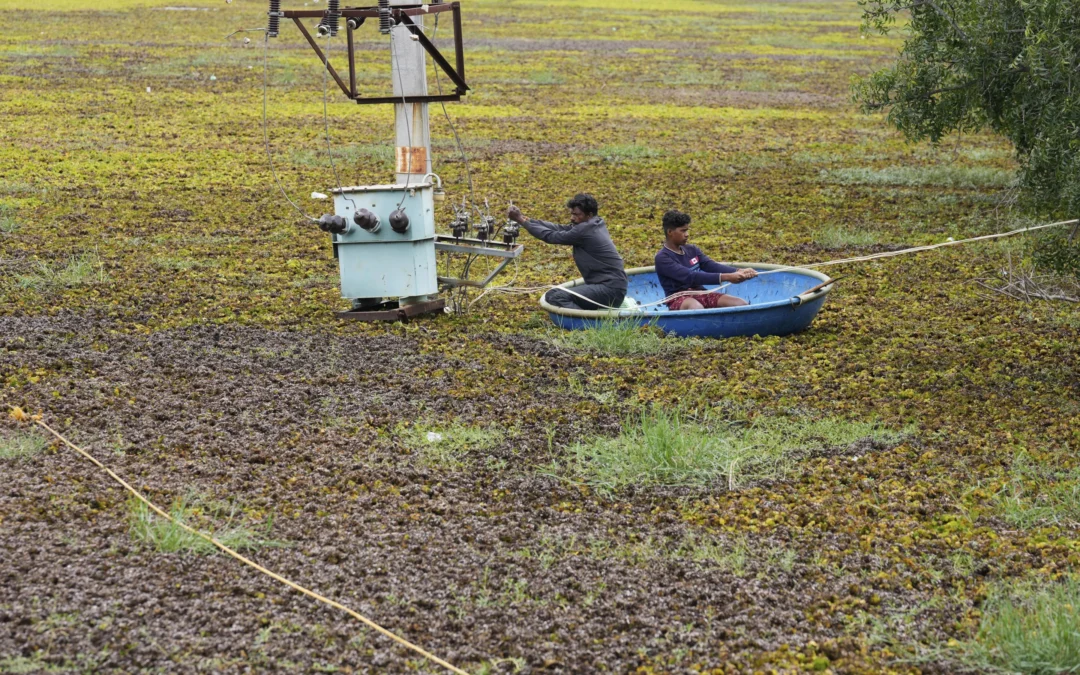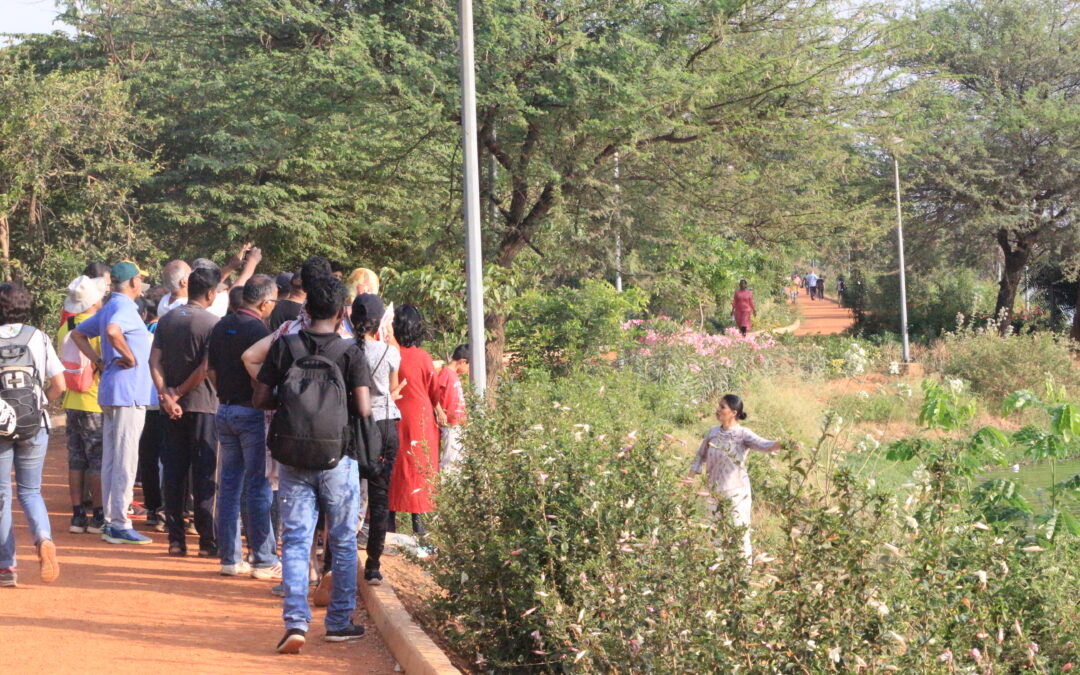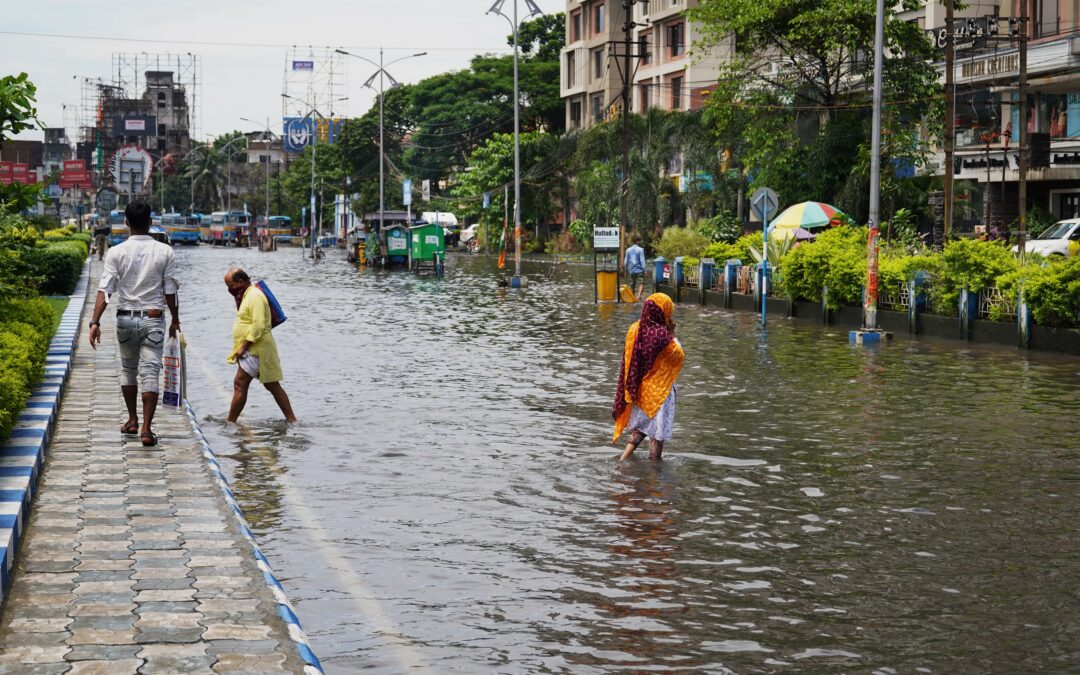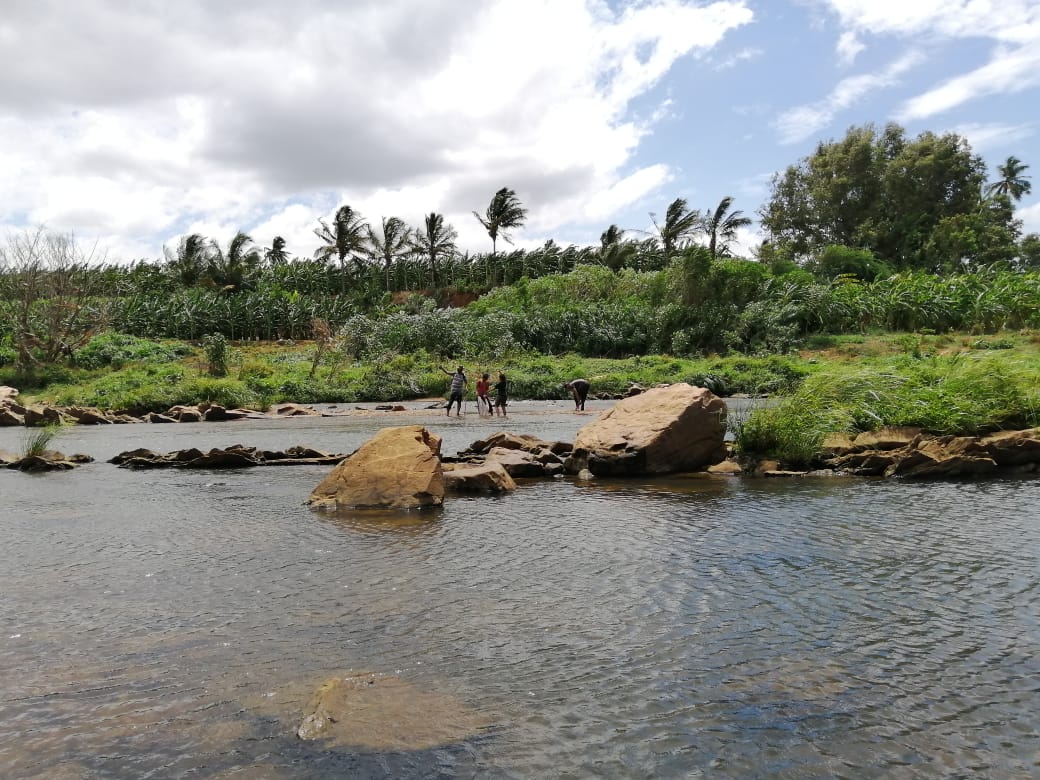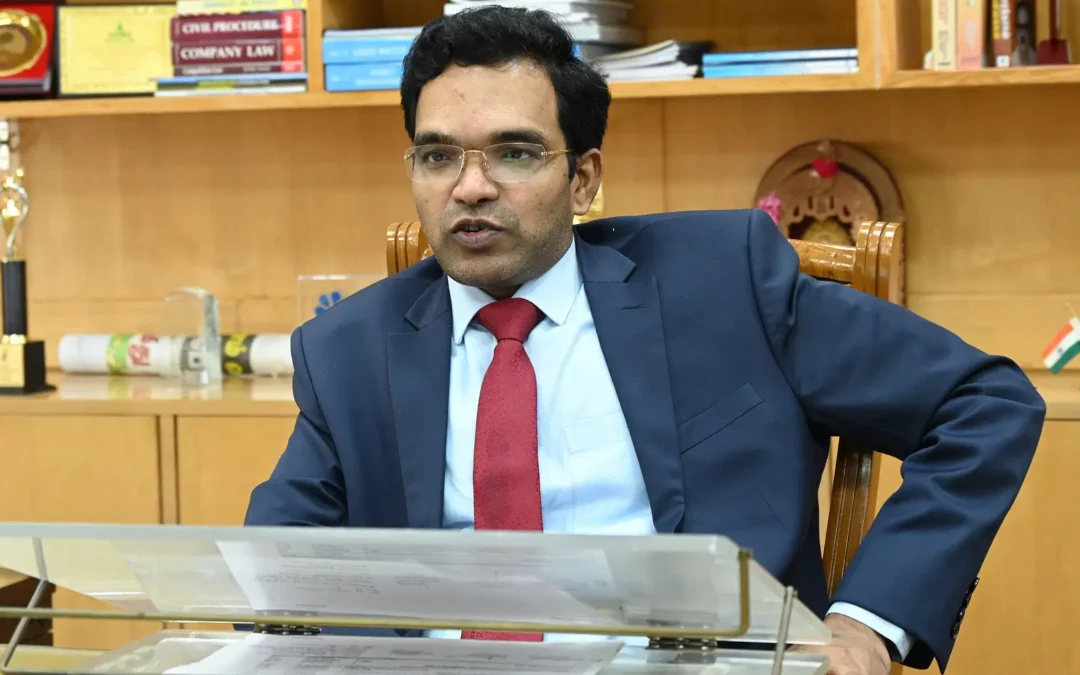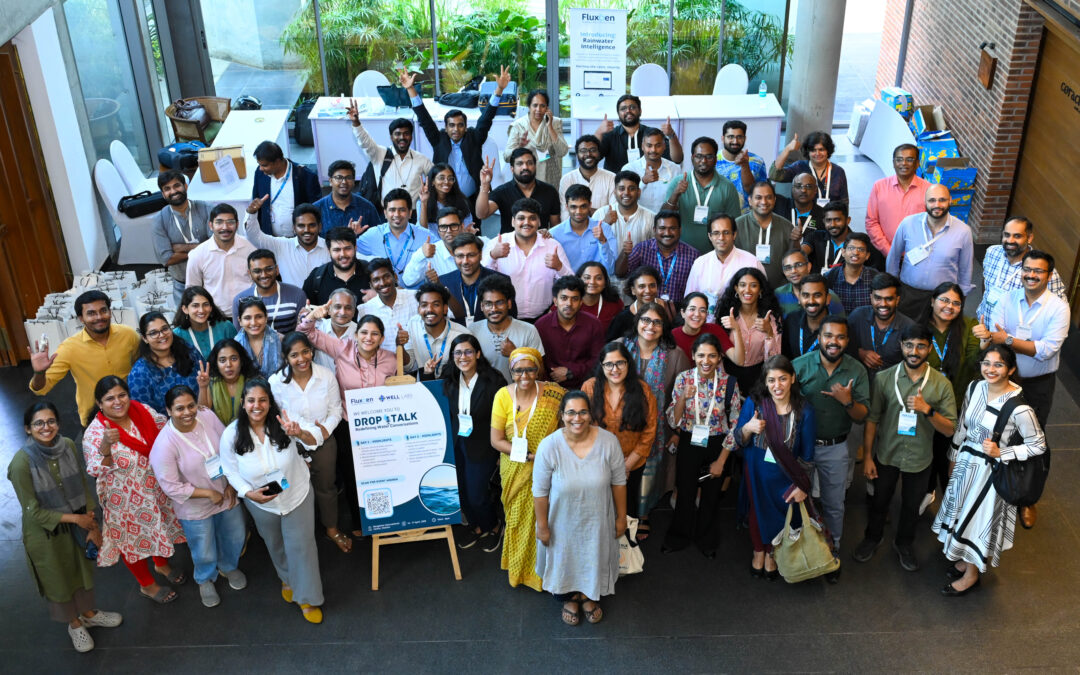Urban Water
The Urban Water programme designs pathways towards water-secure and flood-resilient cities. We do this by addressing knowledge gaps to enable effective decision making and building coalitions between governments, market players and civil society groups.
Domestic sewage discharge at Noyyal River. Photo by Rashmi Kulranjan.

The Gaps
Our Approach
Publications
Team
Water problems in cities and towns are complex and interconnected. The impacts of flooding and urban drought are expected to worsen as more and more land is built up, more people live in cities and extreme climate events grow more intense and frequent.
We have identified gaps in integrated urban water management (IUWM) in cities like Bengaluru and smaller towns in Karnataka such as Chintamani and ways to address them. IUWM involves a set of participatory planning and management approaches, going beyond traditional infrastructure-based water planning by taking into account institutional, social and governance aspects.
The Gaps
Fragmented data and efforts
One of the most challenging aspects of creating a viable long-term water strategy is getting accurate information. Data on water flows and stores is fragmented and not available in ways that are usable for civil society organisations, researchers and policymakers. Moreover, in cities like Bengaluru, there is no dearth of initiatives by different actors to revive water bodies, curb pollution and reuse wastewater. But many of these efforts remain local and there is little cross-learning and consolidation of efforts.
The map below shows different water management projects in Bengaluru, such as open wells, lake rejuvenation and stormwater drain restoration. It keeps evolving as we uncover new research and initiatives. This map also depicts how such work happens in isolation, each being carried out by a different set of people.
No repository of trusted solutions
One reason why solutions do not scale is because there is little clarity on what works, where and how. Besides, it is hard to quantify and abstract models to different contexts.
Lack of incentive alignment
To move from research on viable solutions and metrics to implementation, long-term financing options and an enabling policy environment are prerequisites.
Our Approach
Aggregating data and building an ecosystem
We are compiling data from various sources to paint a detailed picture of Bengaluru’s water system. When there is a comprehensive overview of the various processes occurring within an urban water system, it becomes easier to analyse how strategies can address multiple dimensions of water security planning.
Read | Why We Need Urban Water Balances
WELL Labs is an ecosystem builder—we foster collaboration and alignment between different cultures of work. We work with actors across the board, from government officials and market players to civil society groups, in an effort to build a strong coalition of partners geared towards building more equitable and safe cities.
Co-designing evidence-based and user-centric solutions
We work closely with research organisations to understand the efficacy of different solutions. In terms of wastewater, these range from scientific fixes to improve the standard of treated wastewater to exploring ways to promote behavioural change and address the ‘yuck factor’ barrier that prevents more widespread reuse. By vetting these solutions and taking successful pilots to other places in collaboration with our partners, we contribute to more widespread impact.
Designing market instruments and policies
Water recharge at the city scale through flood water capture and water reuse through wastewater treatment are capital-intensive procedures involving high set-up and operational costs. We are studying the potential of water credits to plug the gap in financing.
Publications
Incorporating Nature-Based Solutions to Manage Flooding: Transforming Bengaluru’s Manyata Tech Park
With conventional engineering solutions failing to control flooding in Bengaluru, we assess the potential of nature-based solutions through a modelling…
Promoting Wastewater Reuse, Community Engagement, and Financial Incentives for Water Conservation | Insights from the Urban Water Programme
The Urban Water team shares insights from their initiatives for water circularity and resilience
Celebrating Nature and Community: The Spirit of ‘Kere Connect Habba’
Friends of Lakes and India Cares Foundation are organising Kere Connect Habbas, or lake festivals, around the lakes of Bengaluru,…
How Can We Engage Communities to Conserve Water in Bengaluru?
The Green Star Challenge promotes water sustainability in Bengaluru by acknowledging and promoting communities’ and institutions’ conservation efforts
Building Climate-Resilient Cities with Nature-Based Solutions
In part 3 of this blog series, we look at how nature-based solutions (NbS) can help urban India mitigate and…
Bengaluru Has the Highest Number of Decentralised Sewage Treatment Plants Globally. Are They Effective?
WELL Labs and Eawag surveyed decentralised sewage treatment plants in the Yelahanka zone of northern Bengaluru to understand the challenges…
Grey to Blue: What Can Bengaluru Learn From Chennai on Tertiary Treatment of Wastewater
Chennai’s Nesapakkam plant is an important project we need to evaluate and consider replicating in other cities because it converts…
Webinar on Water Security in Karnataka’s Small Towns: 5 Key Learnings
India's small towns face many complex and intersecting risks. To better understand current challenges and explore opportunities, WELL Labs partnered…
Bengaluru’s Wastewater Market Experiment: A Promising Solution for Water-Scarce Cities Globally
The economic case for on-site treatment of wastewater is weak. However, the recent water crisis coupled with the new policy…
Where Does Bengaluru Get Water from?
It is important to understand where Bengaluru gets water from and how it is used to tackle the recurring problems…
Barriers to Mainstreaming Nature-Based Solutions in Urban India
Our study delves into the barriers to the large-scale adoption of nature-based solutions in Indian cities, synthesises insights from other…
Unlocking Nature-Based Solutions
WELL Labs and RMI convened a multi-stakeholder workshop to co-develop actionable solutions for scaling nature-based solutions across building, neighbourhood, and…
Review: Draft Framework for Lake Rejuvenation
WELL Labs, in collaboration with Friends of Lakes and supported by DCB Bank and BBMP, has drafted a framework for…
Mapping Water in a Small Town: Insights from Chintamani, Karnataka
We partnered with TIDE and BORDA to conduct an urban water balance exercise for the town of Chintamani in southern…
Exploring the use of data and models in transboundary water governance
This study highlights how data and models in transboundary water governance require sensitive, context-aware application, emphasizing political realities, local engagement,…
Acceptance of On-Site Wastewater Treatment and Reuse in Bengaluru, India: The Role of Perceived Costs, Risks, and Benefits
In dealing with water pollution and freshwater scarcity, on-site treatment and reuse of domestic wastewater has shown to be a…
How Water Flows Through Bengaluru: Urban Water Balance Report
WELL Labs has prepared a comprehensive view of Bengaluru's water system, enabling better water security planning.
Phosphorus Balance Study at Jakkur Lake
We conducted a phosphorus balance study to understand the sources and sinks of phosphorus in Jakkur lake
Challenges and Opportunities in Residential Decentralised Wastewater Treatment and Reuse in Bengaluru
We explore the potential of decentralised sewage treatment plants, which are being promoted in cities like Bengaluru, to treat sewage…
How Do We Manage Nutrient Levels in Urban Lakes?
This article is the sixth in a multi-part series on lakes that aims to provide a comprehensive overview of lake…
New zonal drainage master plan on the cards to tackle flooding in Bengaluru
Published in The Hindu
Whitefield drains expose severity of Bengaluru’s stormwater crisis
Published in Deccan Herald
As climate risks grow, India’s Bengaluru is trying to save its vanishing lakes
Published in Associated Press
Planting Hope: How Community Afforestation Efforts Help Restore Bengaluru’s Greenery
Published in Citizen Matters
RO Water Purifiers Explained: What Every Homeowner Should Know
Published in Citizen Matters
The Greater Bengaluru Authority Must Embrace River-Centric Planning
Published in South First

